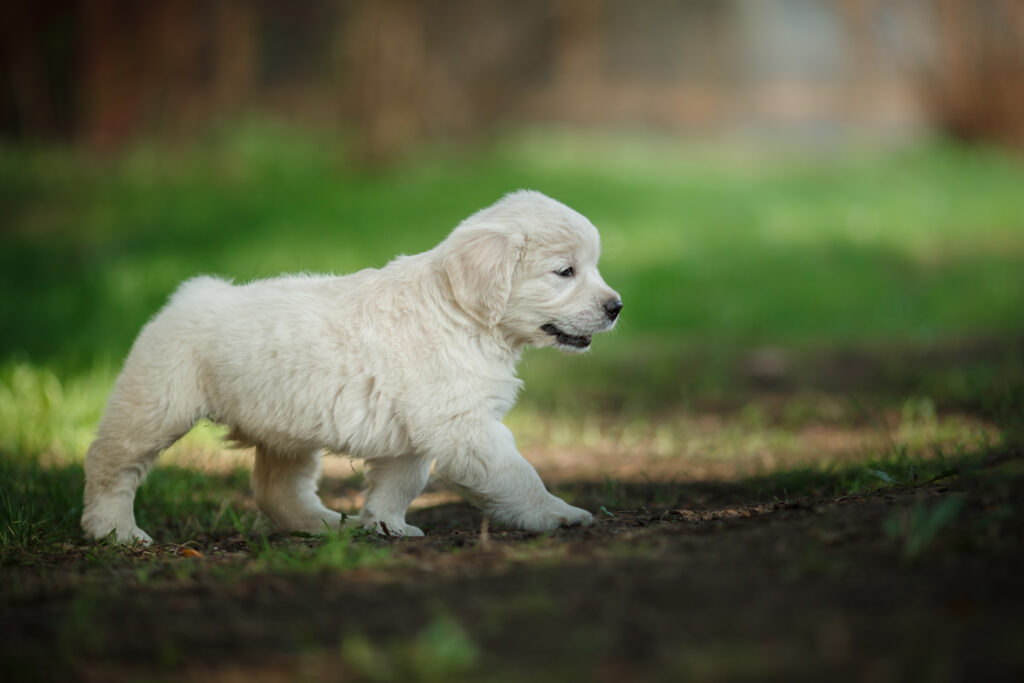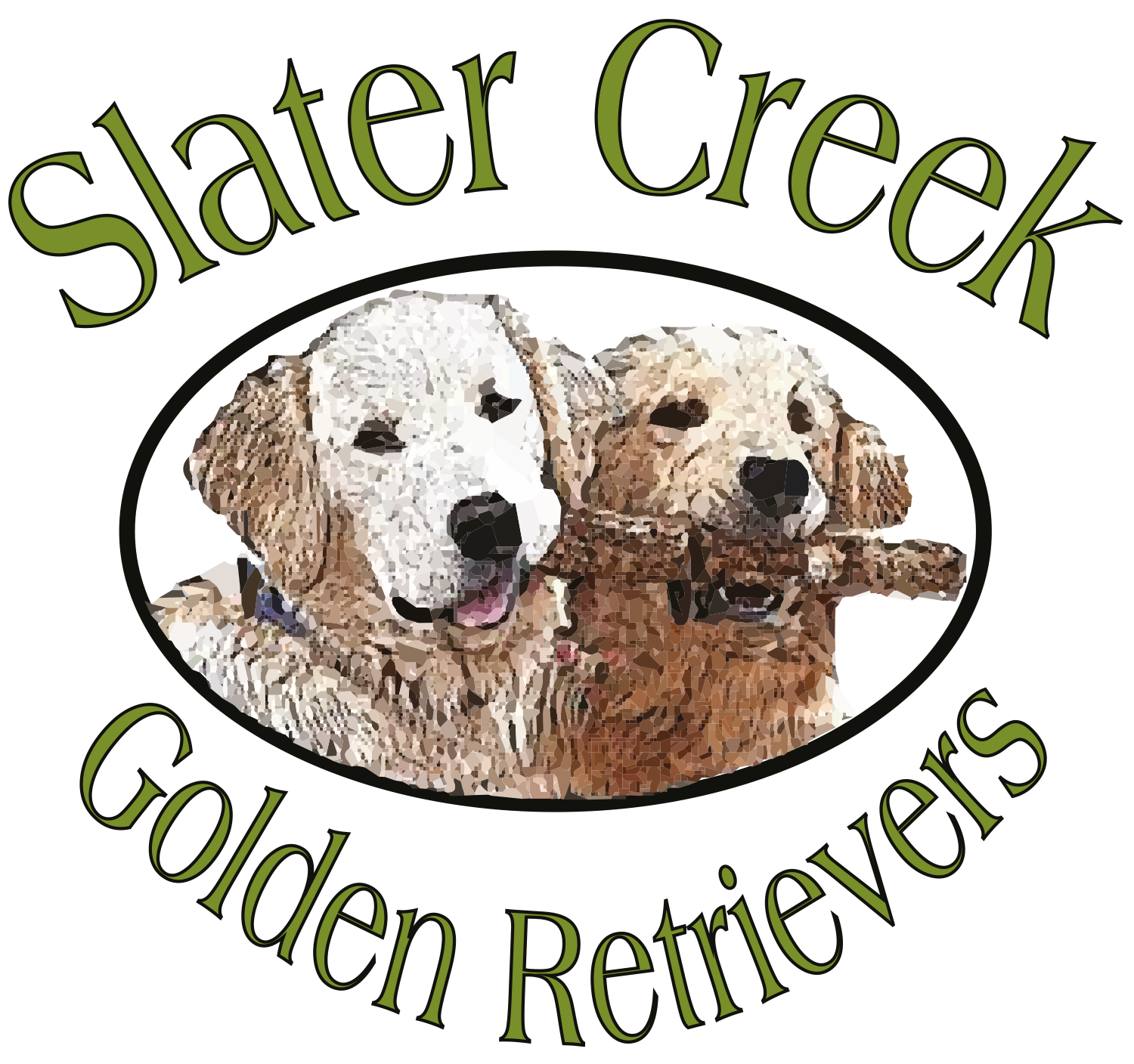The first night Buddy came home, I didn’t sleep at all. Not because he was crying (though he was), but because I kept checking to make sure he was still breathing. Eight weeks old, twelve pounds of fluff, and I was terrified I’d already screwed something up.
That was six months ago. Now he’s fifty pounds of pure chaos who knows “sit,” “stay,” and “drop it” (mostly). Looking back, those first thirty days set the foundation for everything. Here’s what I wish someone had told me before I brought that yellow furball home.
Day One: Lower Your Expectations
You know those videos of golden retriever puppies perfectly heeling beside their owners? Yeah, forget those. Your first day will involve pee on the floor, crying, and wondering what you’ve done. This is normal.
Buddy threw up in the car on the way home, peed the second we walked inside, and then refused to eat. I called the breeder in a panic. “He’s scared,” she said. “You would be too if giants took you from everything you knew.”

Puppy Golden Retriever Loves Learning
Keep day one simple. Show them where to potty (outside, hopefully). Show them where to sleep. Show them where water is. That’s it. No training, no rules, no expectations. Just let them exist and start feeling safe.
The Bathroom Chronicles
Golden retrievers are smart, but their bladders are tiny. Buddy needed to pee every 45 minutes when awake. I set phone alarms and became that person standing in the yard at 3 AM in pajamas and rain boots.
The formula that worked: take them out immediately after waking, after eating, after playing, and every hour in between. Yes, it’s exhausting. Yes, you’ll miss some. I kept paper towels and enzyme cleaner in every room.
“Did he go potty?” became the most common phrase in our house. My husband created a chart. I thought he was being ridiculous until it helped us notice Buddy always needed to poop twenty minutes after breakfast. Patterns matter with puppies.
Pro tip: throw a party when they go outside. I mean it. Clap, cheer, give treats. Our neighbors thought we were insane, but Buddy was house-trained in three weeks. Worth looking crazy.
Sleep (Or Lack Thereof)
The crate debates online are intense. Here’s what worked for us: Buddy’s crate stayed in our bedroom the first two weeks. Yes, he cried. No, we didn’t take him out (unless for bathroom). By night three, he slept four-hour stretches.
My friend Sarah tried the “let them sleep in bed” approach. Six months later, she’s still fighting to reclaim her mattress from a 70-pound bed hog. “But he was so tiny and sad,” she explains. I get it, but future you will thank present you for being strong.
The breakthrough came when I put one of my worn t-shirts in his crate. Suddenly, he settled faster. Smell matters more than we realize to puppies.
The Biting Phase
Nobody warns you about the teeth. Golden retriever puppies are basically land sharks with fur. Buddy bit everything—hands, feet, furniture, walls. My arms looked like I’d wrestled a rosebush.
“Ouch!” and stopping play worked… eventually. Consistency is everything. Every single person who interacted with Buddy had to respond the same way to biting. My mother-in-law kept letting him nibble her hands because “it’s cute.” It’s not cute when they’re full-grown with adult teeth.
Redirect to toys constantly. I had Kong toys in every room. When tooth met skin, toy went in mouth. Over and over and over. It took weeks, but it worked.
Basic Commands That Save Lives
Forget fancy tricks. In the first month, focus on “sit,” “come,” and “drop it.” These aren’t just cute party tricks—they’re safety essentials.
“Sit” was easy. Golden retrievers will do anything for food. Hold treat above nose, move it back over their head, butt hits ground, treat happens. Buddy learned this in two days. We practiced before every meal, before going outside, before anything good happened.
“Come” took longer. Started inside with high-value treats (cheese worked for Buddy). Say name, “come,” and back away. Make it a game. Never call them to come for something they hate, like bath time. That’s how you break the command.
“Drop it” saved Buddy’s life when he grabbed a chicken bone on a walk. Practice with toys first. Trade whatever they have for something better. Make dropping things the best game ever.
Socialization Without Stupidity
The vet says no dog parks until fully vaccinated. But socialization can’t wait. We carried Buddy everywhere those first weeks. Hardware stores, outdoor cafes, friend’s houses. He met people of all ages, saw wheelchairs, heard motorcycles, encountered cats through windows.
“But isn’t that dangerous?” my neighbor asked. More dangerous than having an 80-pound dog who freaks out at skateboards because he never saw one as a puppy. Use common sense. No dog parks, no unknown dogs, no eating random stuff. But isolation creates more problems than it solves.
The Food Games
Golden retrievers love food. Love it. Will sell their soul for a piece of kibble. Use this. Buddy rarely ate from a bowl those first weeks. Every meal was training.
Breakfast taught “sit” and “stay.” Lunch worked on “come” and leash walking. Dinner practiced “leave it” and calm settling. His regular food became training treats. No extra calories, tons of practice.
My brother bought every puzzle toy on Amazon for his golden puppy. Great for mental stimulation, but don’t forget: the best training happens during regular life, not special sessions.
Setting Boundaries Without Being Mean
Buddy tested every rule. No furniture? He’d put one paw on the couch and stare at me. No jumping? He’d hover one millimeter from jumping position. They’re too smart for their own good.
Consistency matters more than strictness. We decided couches were okay, beds were not. Everyone in the house had to enforce the same rules. Mixed messages confuse puppies and create anxious dogs.
When Buddy crossed boundaries, we redirected. Off the bed meant “go to your bed” with a treat waiting there. No wasn’t enough—he needed to know what TO do, not just what not to do.
The Reality Check
Those first thirty days were harder than I expected. I cried twice, considered rehoming once (at 4 AM after the third accident), and googled “is my puppy broken” more than I’ll admit.
But here’s what the frustration hides: it gets better. That land shark becomes a dog. The pee stops. The biting ends. The commands stick. Suddenly you realize you haven’t used enzyme cleaner in a week, and your puppy automatically sits before you open doors.
Buddy isn’t perfect. He still thinks socks are delicious and that 5 AM is an appropriate wake-up time. But he’s a good dog because those first thirty days, as exhausting as they were, laid the groundwork.
Take too many pictures. They grow stupid fast. That tiny furball who fit in your lap will be 70 pounds before you know it. Sometimes I look at Buddy now and miss that little terror who cried all night and peed on everything.
Then he brings me a sock he’s stolen, drops it without being asked, and sits waiting for his “good boy” praise. Those first thirty days of consistency, patience, and paper towels? Worth every sleepless night.
